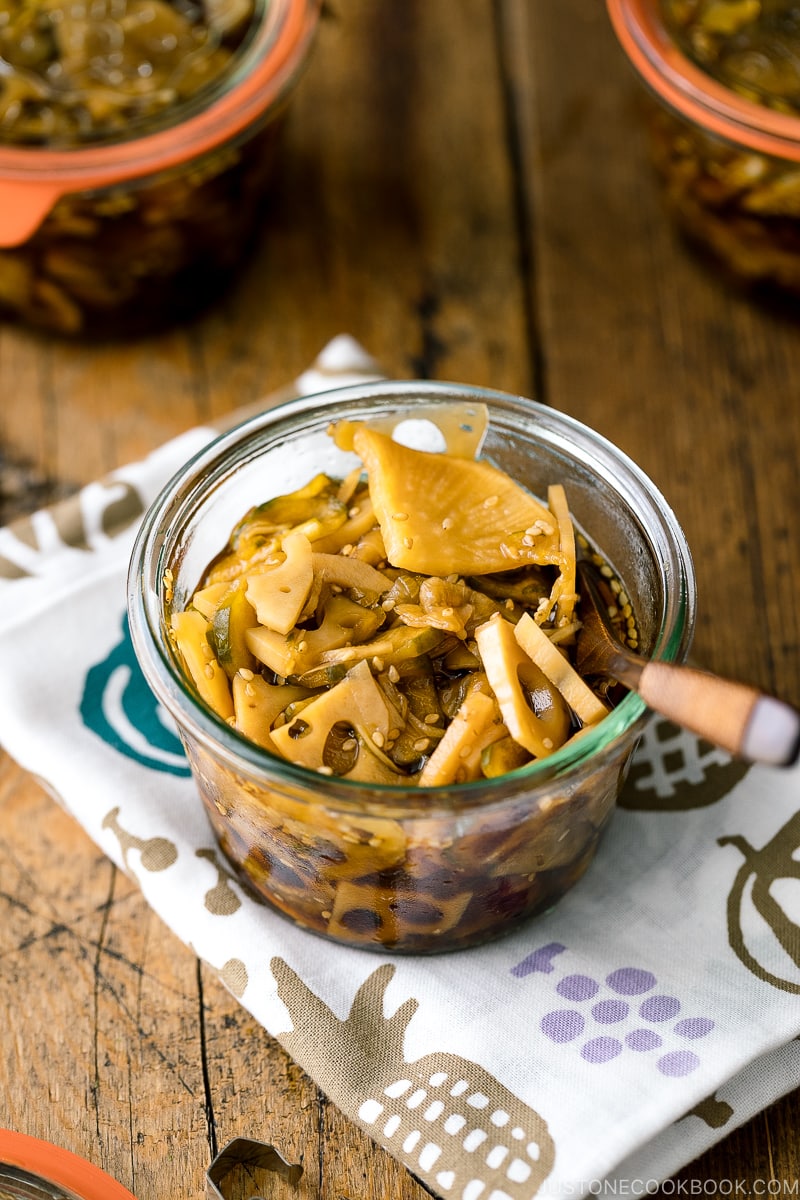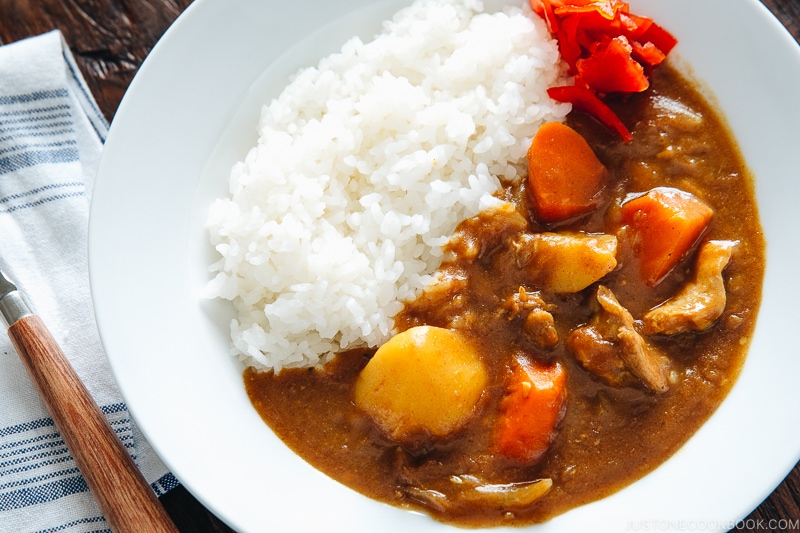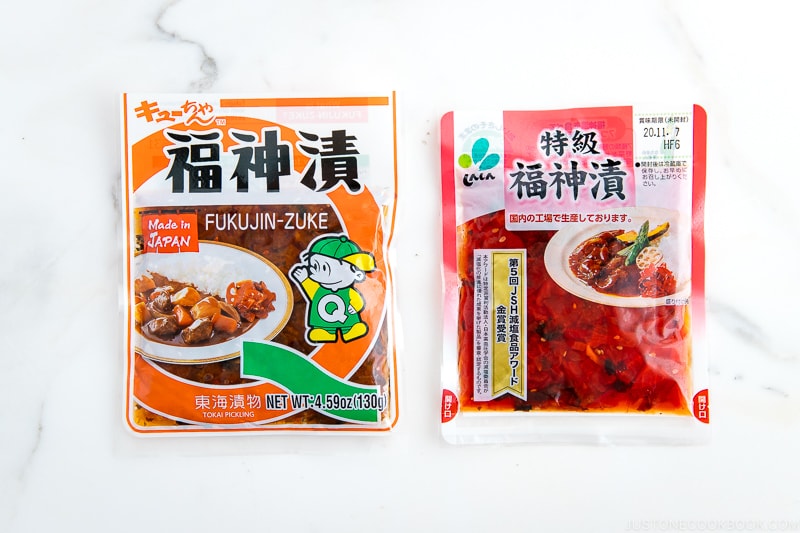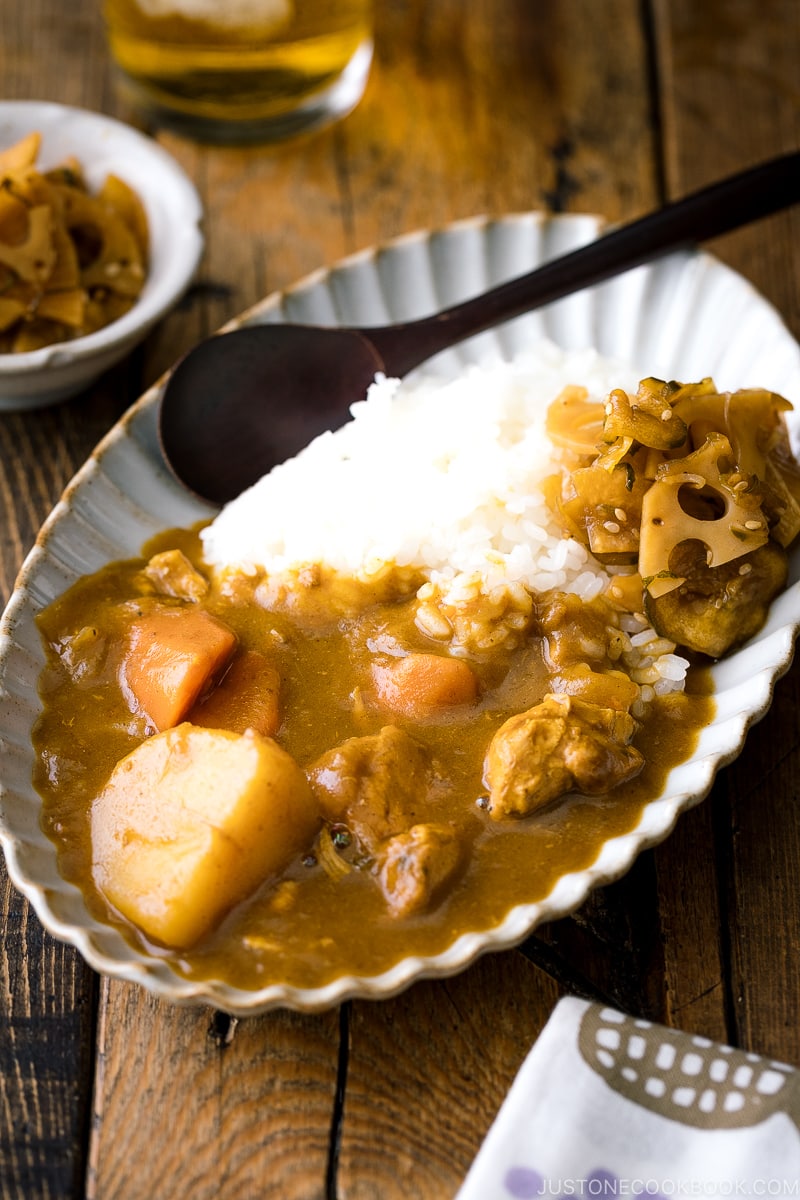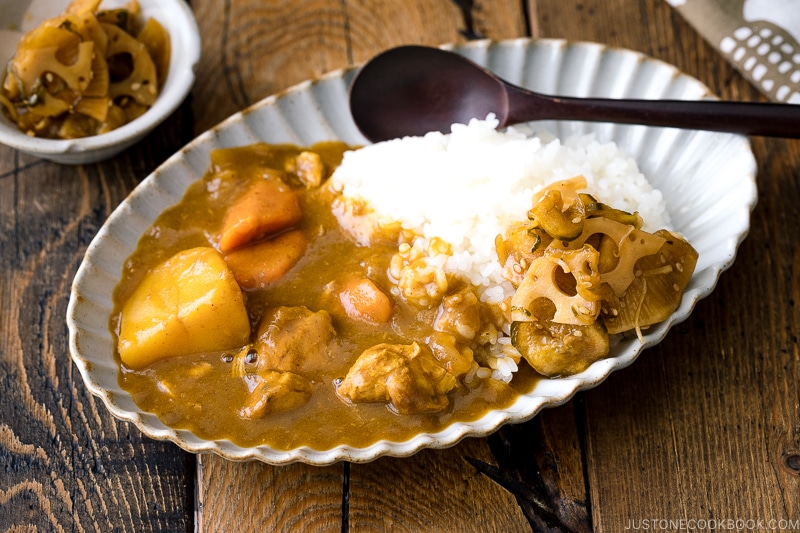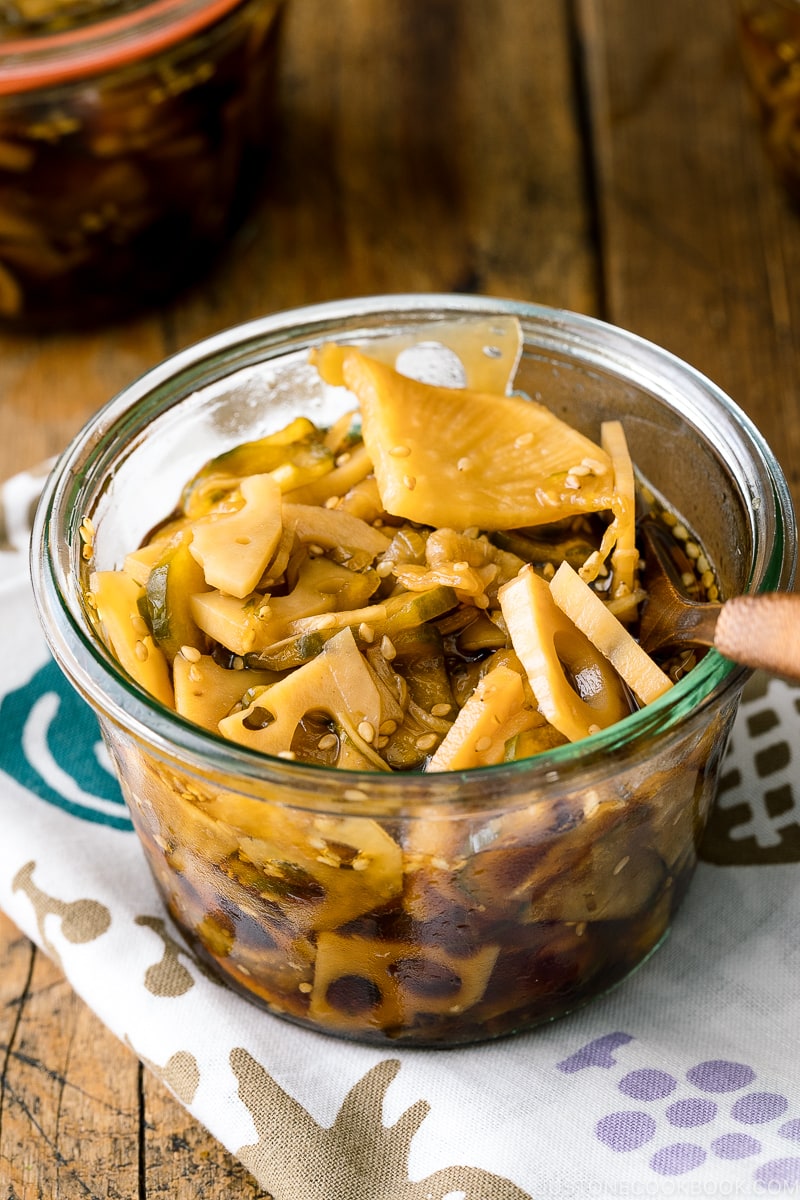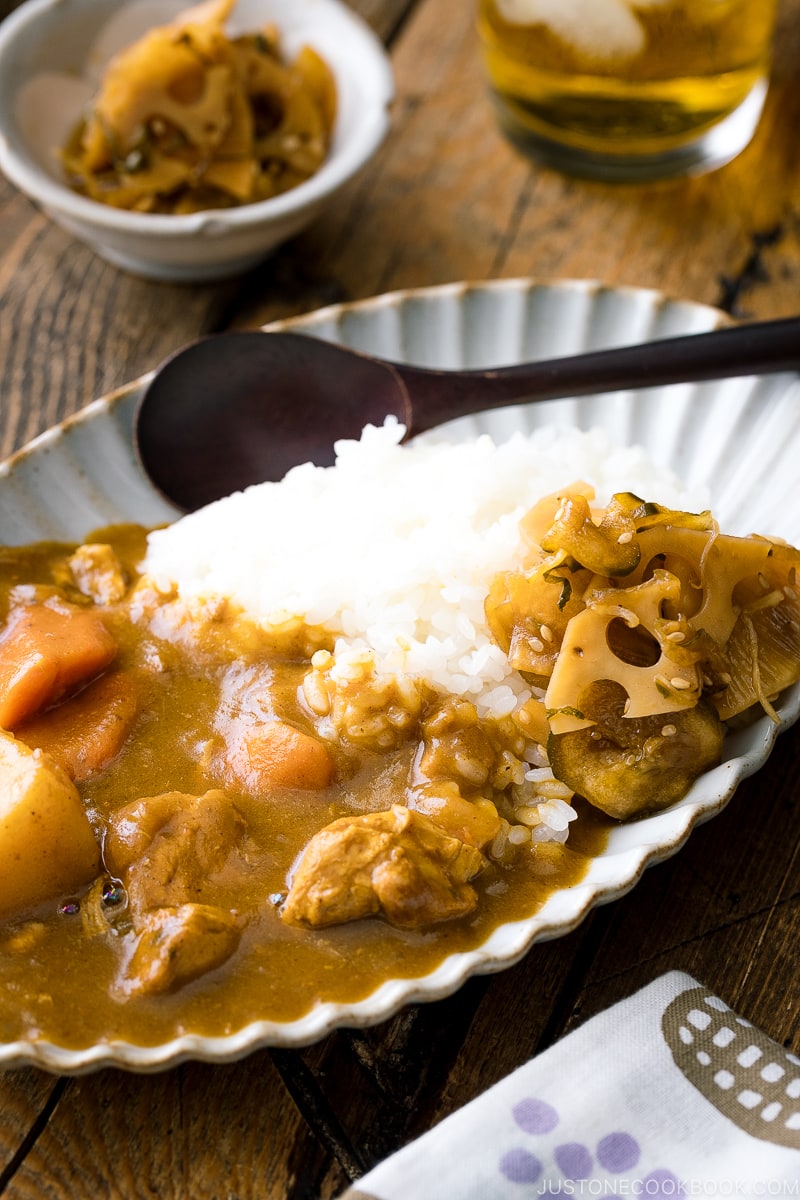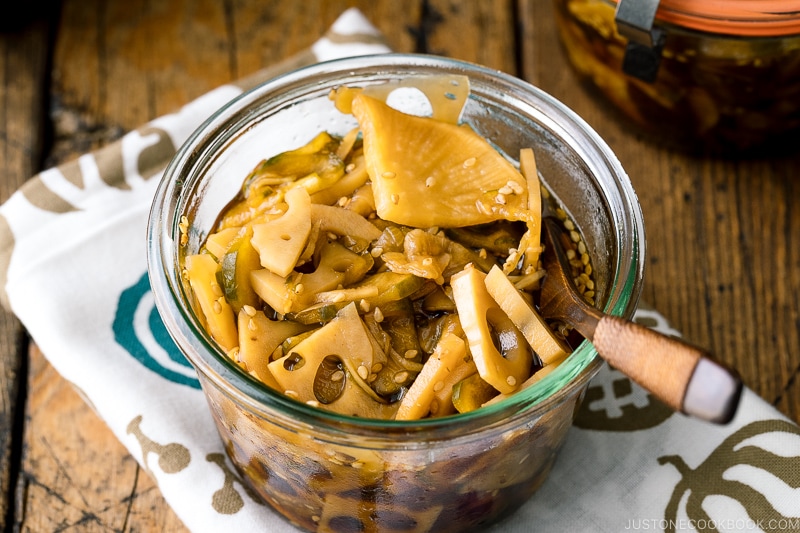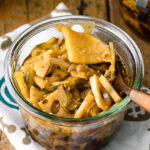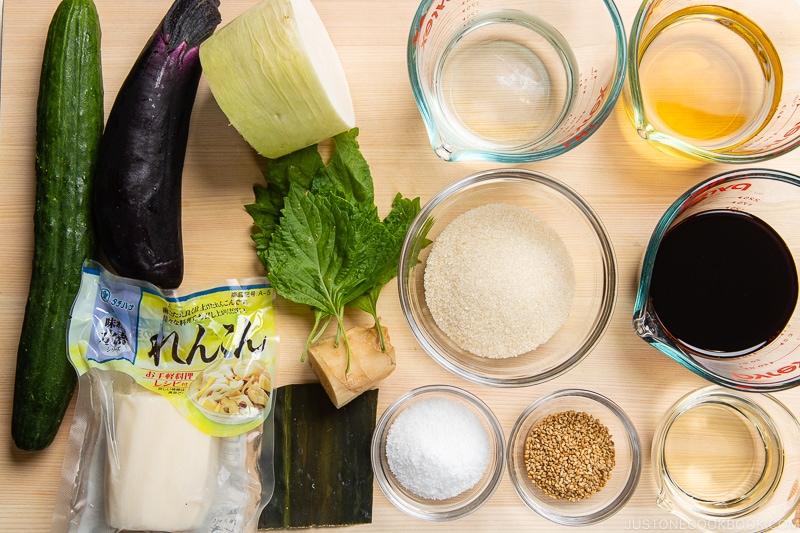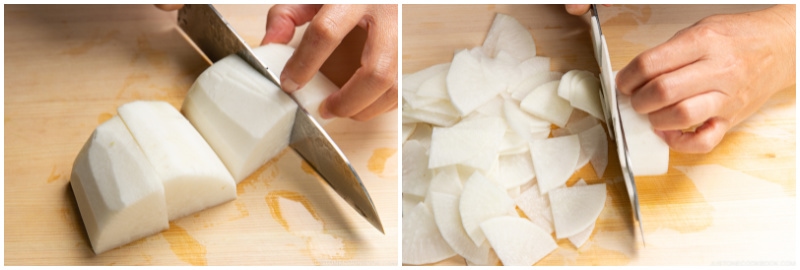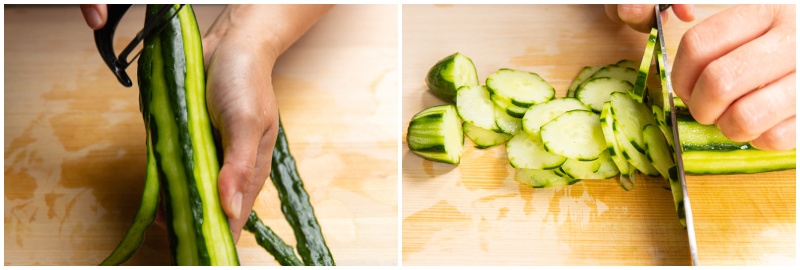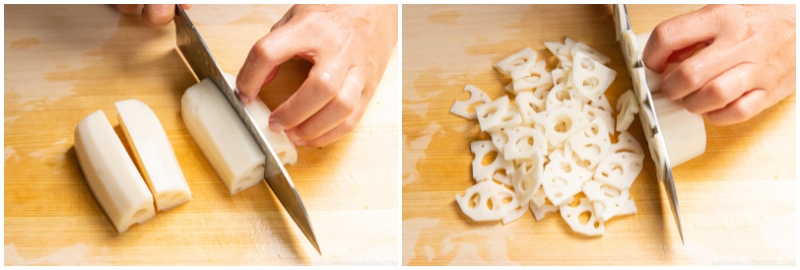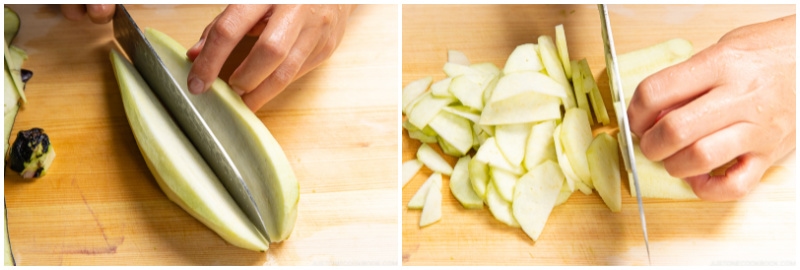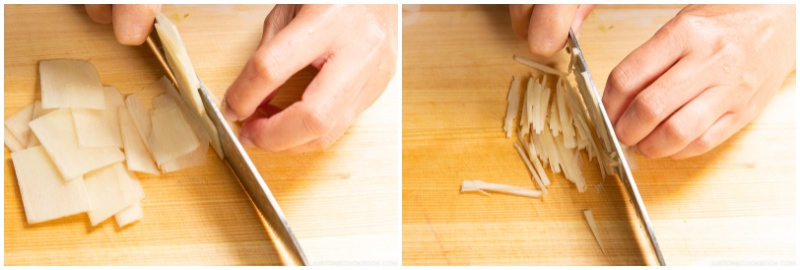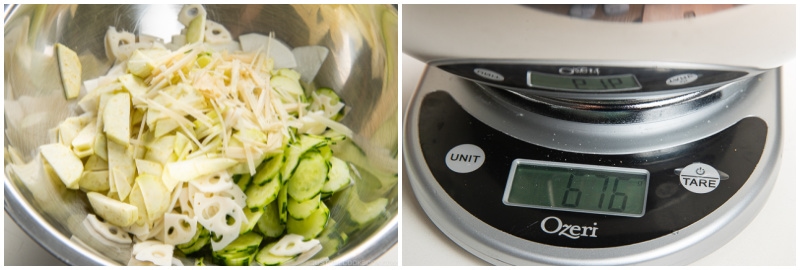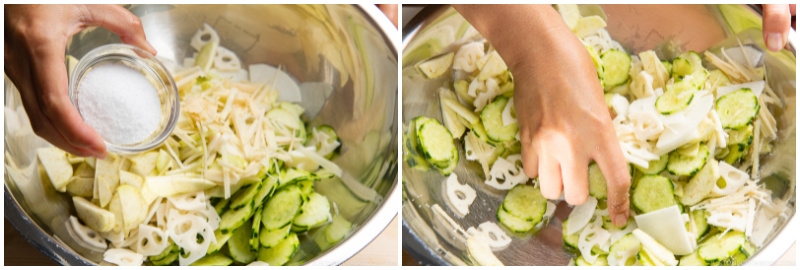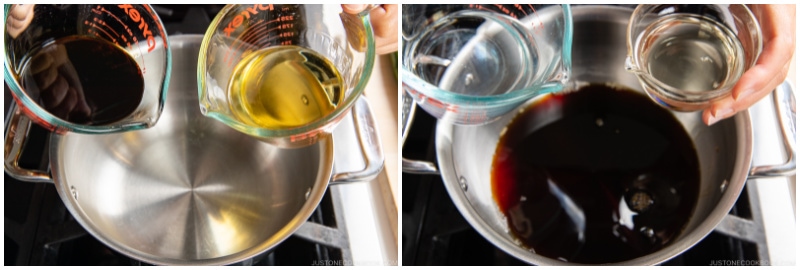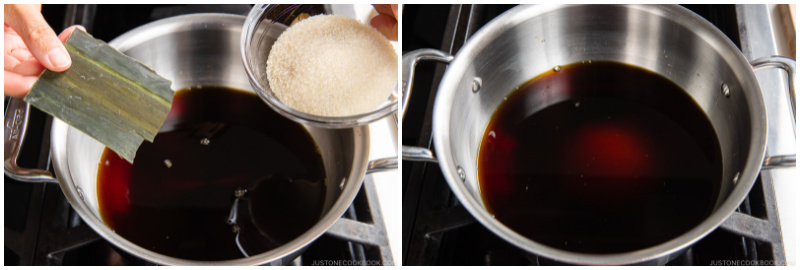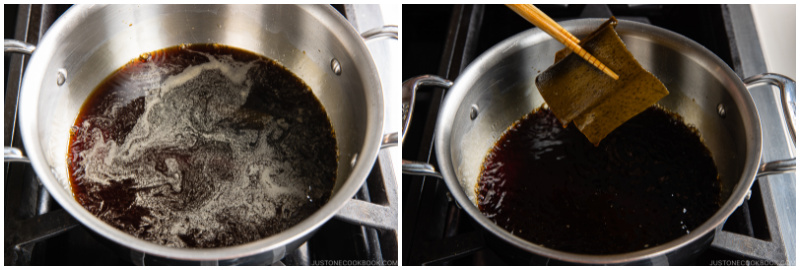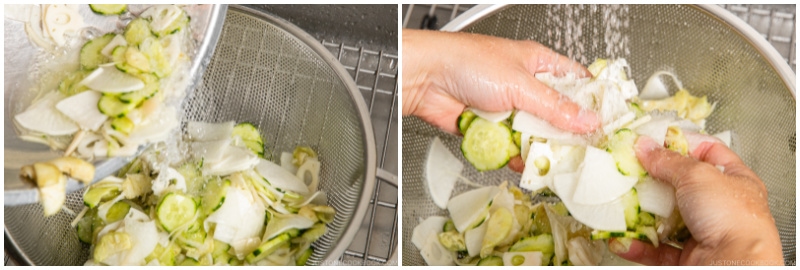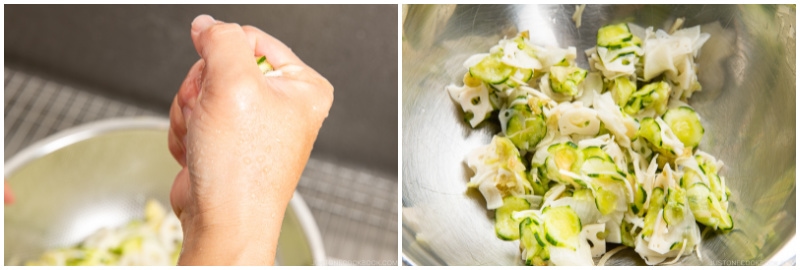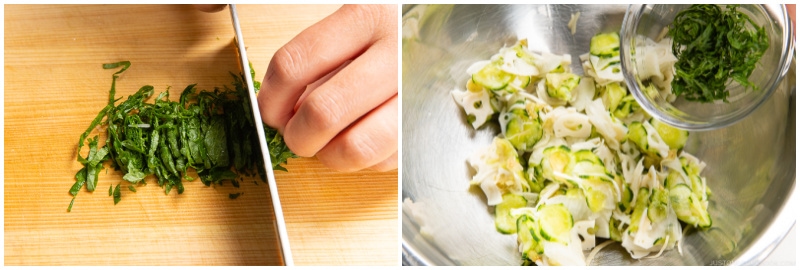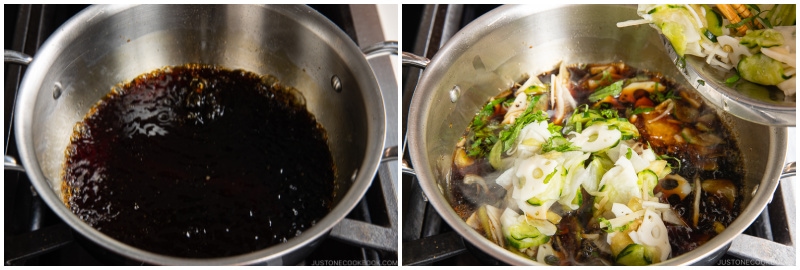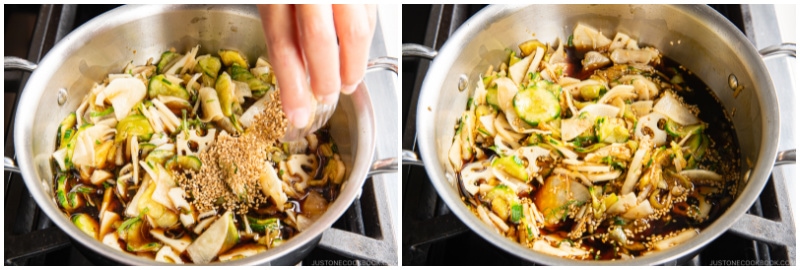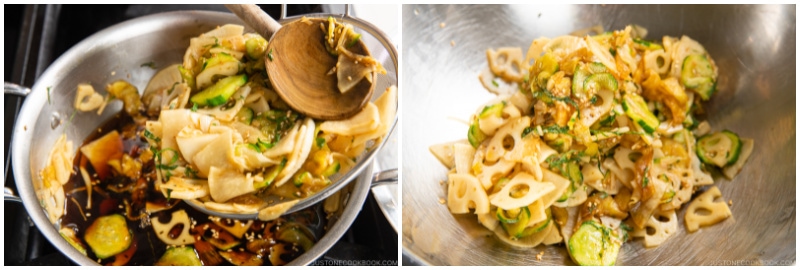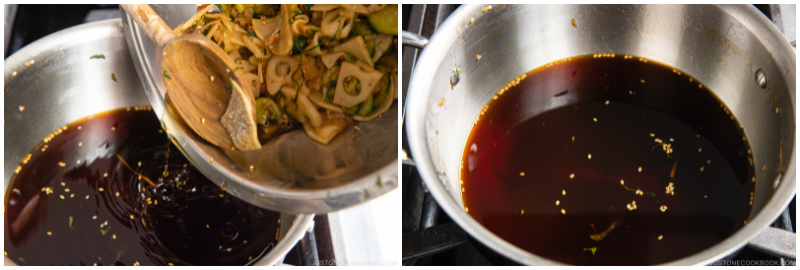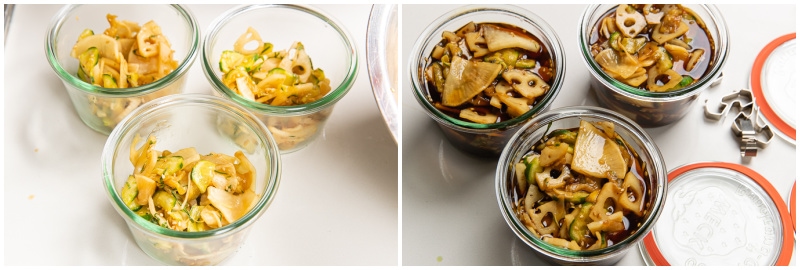A plate of Japanese curry rice is never complete without the crunchy, crimson red pickles called fukujinzuke (福神漬け). These pickled mixed vegetables are sweet and tangy, which perfectly sets off the richness and spices of the curry sauce. While you can easily get store-bought fukujinzuke, I like to make it from scratch in the summertime when most of the ingredients are fresh and in season. My recipe also skips the red coloring typically added to the store-bought version. Read on to learn how you can make these delicious pickles with my Homemade Fukujinzuke recipe!
What is Fukujinzuke?
Customarily served with Japanese curry, fukujinzuke (福神漬) is a type of tsukemono, or Japanese pickle. Fukujinzuke is savory, sweet, and tangy, and addictively crunchy. We love it with steamed rice and curry because it helps refresh and cleanse the palate between bites. Easily recognizable for its eye-catching red color, fukujinzuke is a vegan recipe that contains a vegetable medley of daikon, eggplant, lotus root, cucumber, and bamboo shoots. They are cut into small pieces, salted, and pickled in a brine of soy sauce, mirin, rice vinegar, and sugar. There are a few theories of the origin of the name “fukujinzuke.” One of the popular theories is that the pickles use 7 kinds of vegetables, hence the name fukujin-pickle as a tribute to the Seven Lucky Gods, or shichi-fukujin (七福神). Commercial fukujinzuke typically uses food coloring to give it the signature red color. However, I prefer to leave out the coloring and focus instead on the taste and texture when making the pickles at home.
Ingredients You’ll Need for Fukujinzuke
daikon radish Japanese or Persian cucumber lotus root (renkon) Japanese eggplant young ginger green shiso (perilla) leaves kosher salt – for sprinkling on the vegetables; I use Diamond Crystal brand pickling solution – soy sauce, mirin, unseasoned rice vinegar, sugar, and kombu white sesame seeds
How to Make Homemade Fukujinzuke
Important Tips for Making Homemade Fukujinzuke
Cut the vegetables into small and thin slices, about 3 mm thick and less than 1 inch (2.5 cm) square. The uniform size and thickness help to cook the vegetables evenly. Use 3% salt of the vegetable weight to withdraw moisture out of the vegetables. You can increase up to 5%; it will be slightly saltier, but it will last longer (food safety). Adjust the salting and cooking time for your preferred texture. The process of salting and removing moisture from the vegetables and the cooking them determines the end texture of your fukujinzuke. I like my vegetables on the crunchier side, but you can always experiment and adjust the recipe instructions to your liking. Reduce the pickling liquid slightly to let the moisture evaporate so you will have a stronger pickling solution. It’s best to enjoy after pickling overnight.
Delicious Japanese Curry Recipes
Enjoy your homemade fukujinzuke with any of these curry recipes! The pickled vegetables are delicious on their own, too, so I won’t tell if you take a few bites even without the curry or enjoy them with Ochazuke!
Japanese Chicken Curry Pressure Cooker (Instant Pot) Japanese Curry Japanese Beef Curry Japanese Seafood Curry Japanese Tomato Curry Katsu Curry Curry Udon
Sign up for the free newsletter delivered to your inbox and stay in touch with me on Facebook, Pinterest, YouTube, and Instagram for all the latest updates.
